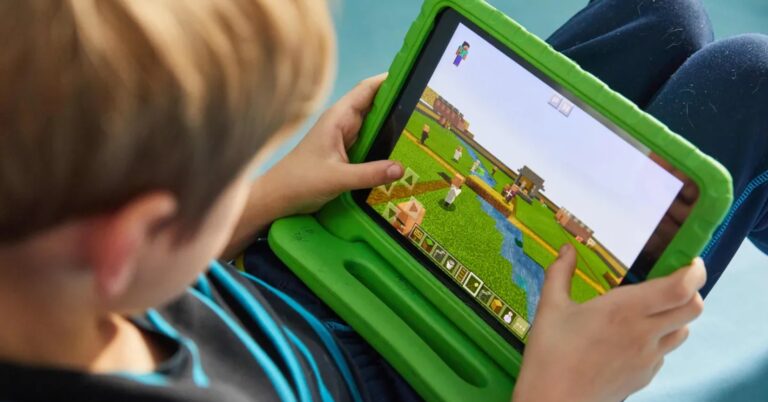Recognizing the social learning style in your child can be incredibly empowering. It allows you to understand how they best absorb information and interact with the world around them. In this realm, specific signs can point towards your child being a social learner.
Social learners thrive in group settings, absorbing knowledge through interaction and collaboration. They enjoy being part of a team and tend to learn by observing others, discussing ideas, and sharing their thoughts.
Nurturing a social learner involves tailoring their learning environment to suit their unique style. This isn’t about changing your child, but rather about empowering them to learn effectively and confidently in a way that aligns with who they are.
In this article, we will delve into these 5 distinct signs that your child is a social learner. Additionally, we’ll provide practical advice on how you can nurture their potential and help them flourish both socially and academically.
The true essence of nurturing a social learner lies in understanding their needs and creating an environment that fuels their learning style. Let’s dive deeper into this fascinating topic in the next section.
1. Enjoys group activities
One of the most noticeable signs of a social learner is their enjoyment of group activities. Social learners thrive in collective environments and feel most energized when they are surrounded by their peers. They often prefer team sports or group projects over solitary activities, as these settings allow them to interact, share ideas, and learn from others.
This preference for group activities extends to their learning style as well. In an academic setting, social learners tend to perform better in group discussions or collaborative projects rather than individual tasks. They learn effectively through conversation and debate, absorbing and retaining information more efficiently when it’s part of a collective exchange.
To nurture this trait, parents can provide opportunities for their child to participate in group activities both inside and outside the classroom. This could be anything from encouraging involvement in team sports, to setting up study groups, or even planning family activities that require teamwork.
Here are a few suggestions:
- Enroll your child in team sports or clubs
- Encourage participation in group projects at school
- Organize family game nights that require teamwork
These initiatives will nurture your child’s social learning tendencies and contribute to developing important skills like communication, collaboration, and leadership.
2. Learns through observation and imitation
Another distinct sign of a social learner is their ability to learn through observation and imitation. They intuitively notice and absorb the behaviors, actions, and skills of people around them. This is often reflected in how they play with others, interact with adults, or even when they engage with characters from a book or a TV show.
In an educational context, social learners can pick up new concepts or skills just by watching their peers or teachers. They are particularly adept at mimicking behaviors, which is why they can often learn new things without explicit instruction.
As parents, you can nurture this observational learning by providing plenty of opportunities for your child to interact with diverse groups of people. This could involve arranging playdates with children of different ages or backgrounds, involving them in community activities, or even exposing them to different cultures and languages.
3. Displays empathy and understanding towards others
Social learners often exhibit a strong sense of empathy and understanding towards others. They are keen observers of human behavior, which allows them to quickly pick up on the emotions and feelings of the people around them. This ability to empathize is not just a sign of emotional intelligence, but it also enhances their social learning.
In a classroom setting, these children often play the role of peacemakers, showing an understanding of different perspectives and finding solutions that satisfy everyone. They are also typically good listeners, able to lend an ear to their peers and offer support when needed.
To nurture this aspect of social learning, encourage open conversations about emotions at home. Discuss how characters in their favorite books or movies might be feeling, and ask them how they would feel in similar situations. This helps your child develop emotional intelligence, enhancing their social learning skills.
4. Demonstrates strong communication skills
Social learners are usually confident speakers and are comfortable expressing their thoughts and ideas in a group setting. They are also good listeners, able to understand and respond to the viewpoints of others.
This attribute is particularly evident in school, where social learners often excel in activities that involve public speaking, group discussions, or team projects. They are not afraid to ask questions or share their thoughts, making them active contributors to the learning environment.
To foster your child’s communication skills, you can engage them in regular conversations about a wide range of topics. Ask open-ended questions that encourage them to express their thoughts and opinions. Engage in debates on various topics, giving them the chance to articulate their viewpoint and listen to others.
Providing opportunities for your child to communicate effectively will nurture their social learning abilities and build important life skills like negotiation, persuasion, and conflict resolution.
5. Adapts well to social changes
Social learners are often adaptable and flexible when it comes to social changes. They tend to navigate transitions smoothly and can adjust quickly to new social situations or environments. This could be seen through their ability to make friends easily in a new school or their comfort in interacting with new people at social events.
This adaptability stems from their keen observational skills and their innate desire to understand and fit into social dynamics. They are quick to pick up on social cues, norms, and behaviors, which helps them blend into new environments with relative ease.
You can cultivate adaptability in your child by exposing them to a variety of social experiences. Encourage them to interact with different groups of people, participate in diverse activities, and expose them to different social environments.
Nurturing Your Child’s Social Learning Style
When you recognize your child’s social learning style, it’s then about nurturing that style in a way that maximizes their potential. This involves creating an environment that encourages interaction, collaboration, and understanding.
Provide ample opportunities for your child to learn in a group setting. Encourage participation in team-based activities on and off the school grounds. Emphasize the value of different perspectives and promote open conversations about emotions and ideas.
Each child’s learning style is unique, and it’s essential to remember that a social learner may also display traits of other learning styles. The key is to observe, understand, and support your child’s individual strengths and preferences.
Being a social learner is not just about academic success, but also about developing essential life skills like communication, collaboration, empathy, and adaptability. By nurturing these traits, you’re supporting your child’s academic journey and equipping them with skills they’ll use throughout their life.








